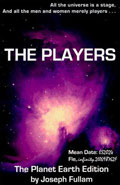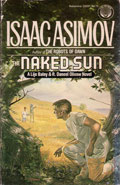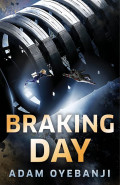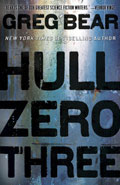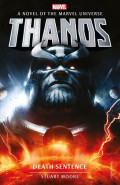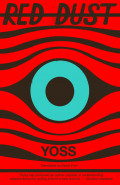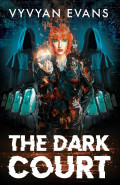Ubik - Folio Society Edition
By Philip K Dick

- Ubik - Folio Society Edition
-
Author: Philip K Dick
-
Publisher: The Folio Society
- ISBN: ubik-folio-society
- Published: July 2019
- Pages: 224
- Format reviewed: Hardback
- Review date: 30/07/2019
- Language: English
A surreal science fiction story, ostensibly set in 1992, Ubik tells the story of an alternative Earth where a range of telepathic abilities have manifested amongst all aspects of society and to counter them, a series of anti-talents have emerged that dampen and suppress these new gifts.
Philip K. Dick is a legend of the genre of science fiction and perhaps better known now for his story When Androids Dream of Electric Sheep that became Blade Runner. However, when Ubik was published in 1969, Dick was a writer with a considerable reputation, having won the Hugo in 1963 for The Man in The High Castle, but he was also fragile, and known to have substance addictions that at times, ran out of control.
The surreal, destabilised context of Ubik could only come from the mind of a man who understood that instability and could find meaning within it. Joe Chip, his employer Glen Runciter and a group of telepaths and anti-telepaths arrive on the moon to fulfil a contract, but they are betrayed when it turns out the person who hired them is trying to destroy Runciter and his firm. An explosion separates the group into two realities. Runciter and Chip struggle to communicate between the two places, eventually, succeeding in making contact and finding a way to help each other towards an awkward ending.
The introduction in this edition, provided by the science fiction icon, Kim Stanley Robinson, does unpick some of Dick’s structural conceits. His analysis of the text and critique of Dick’s work is excellent in its detail and praise, particularly when he considers the science fiction qualities that Dick was attempting to work with.
In many ways, Ubik is of its time. The dialogue and mannerisms are reflective of the American sixties. To this UK reader, some scenes have the same TV show dialogue quality of the time, which may or may not be part of Dick’s intention as the book is trying to undermine its own contrived reality as part of its narrative and after you finish it, the uneasiness of its conclusion does make you question whether any of the scenes were real in the sense of being part of the characters empirical reality, or whether they too were part of some elaborate mental reconstruction.
The Folio Society edition of Ubik is certainly designed with the propensities of Dick and the qualities of Ubik as a narrative in mind. The bright pink slipcase includes a cut-out title that adds this to the cover of the hardback. The green and silver design clashes with the slipcase, clearly an intentional choice to make the book stand out on any shelf. The illustrations from La Boca are similarly abstract and often not specifically linked to the scenes where they are positioned. This appears to be part of the intention. The ideas of Dick in his writing are huge ones, often conveyed through writing that has something of its time within it. La Boca’s illustrations focus on the ideas, helping the reader see through some of the dated mannerisms towards the massive concepts Dick was trying to communicate and helping the book survive despite some of its dated qualities.
What is clear is that Ubik inspired countless works after it. The film Inception (2010) is clearly influenced by Dick's novel and contains the same de-stabilising qualities.
The Folio Society edition of Philip K. Dick’s Ubik, introduced by Kim Stanley Robinson and illustrated by La Boca, is available exclusively from www.FolioSociety.com
Written on 30th July 2019 by Allen Stroud .


